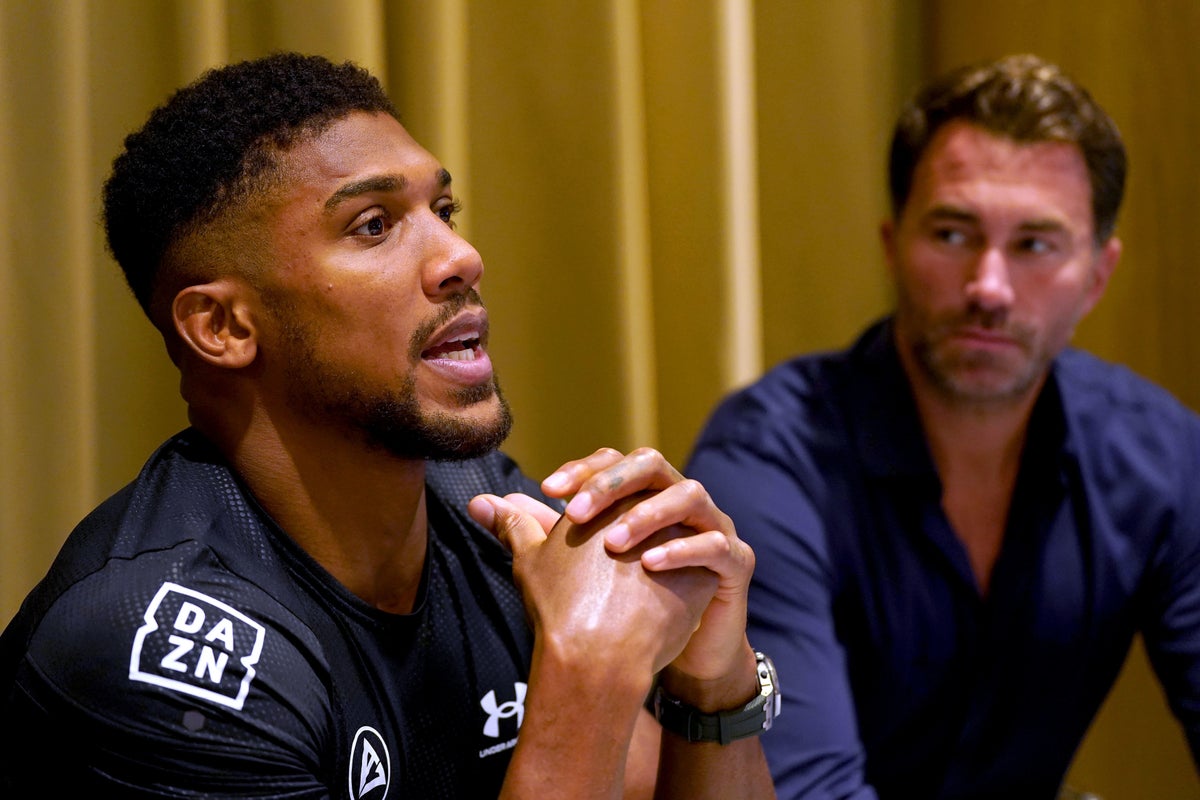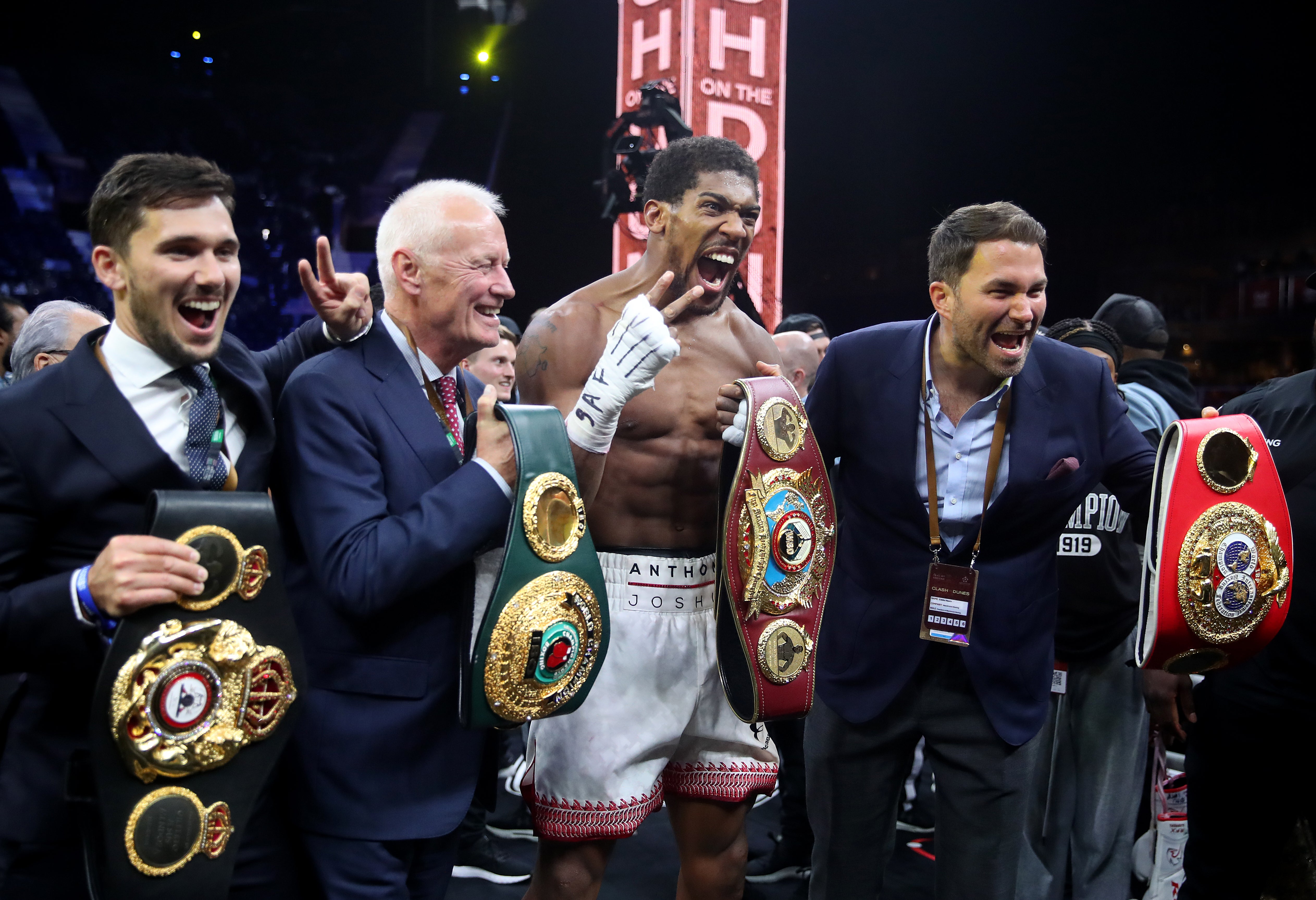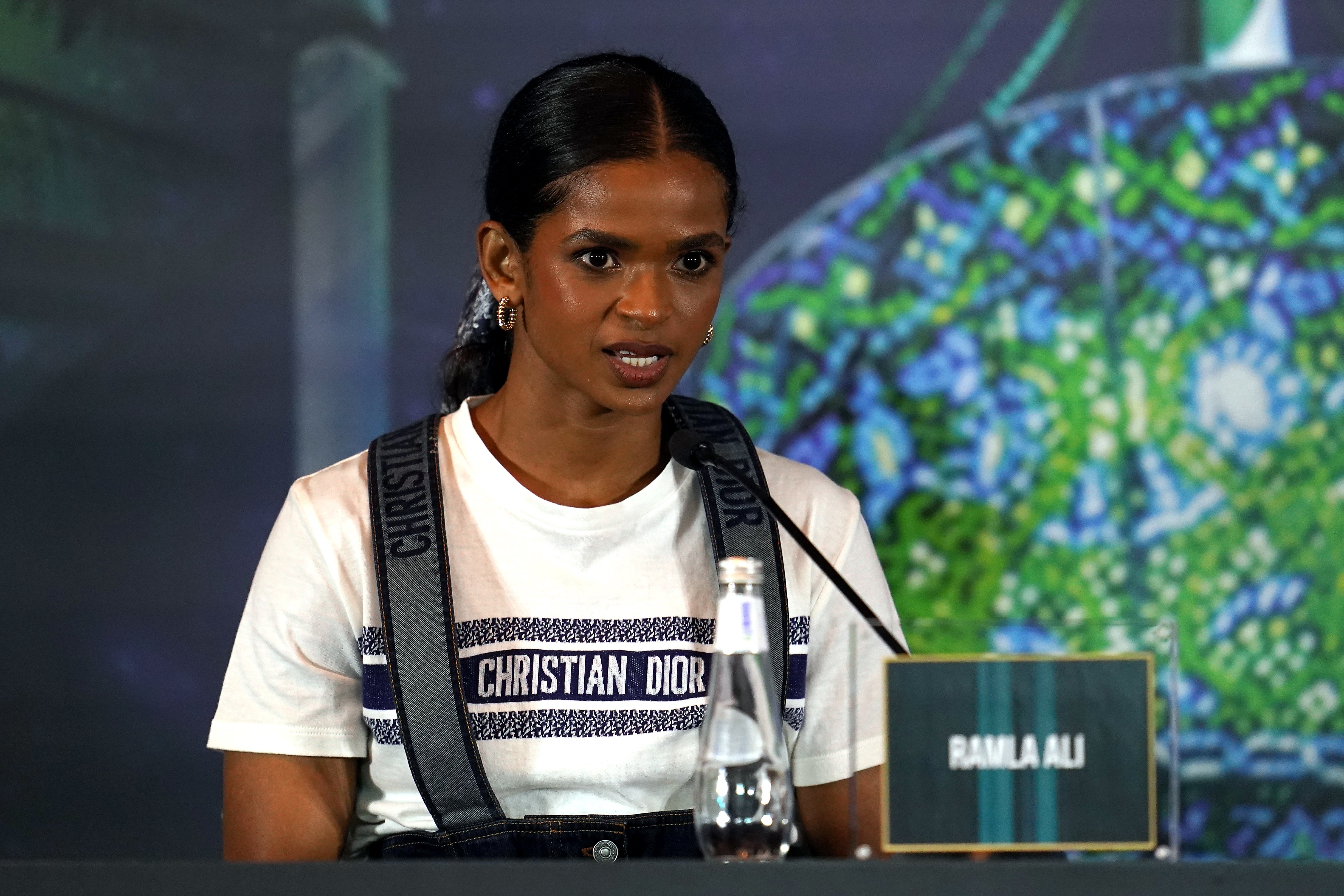
Eddie Hearn wanted to be candid. When asked why the biggest boxing match of the year was being held in Jeddah rather than New York, Las Vegas or London, the answer was clear.
“The problem at the moment is no one wants to be honest,” said Anthony Joshua’s longtime promoter. “I’m very comfortable, particularly in boxing, to make decisions like that. It’s a prize fight where, contractually, we have to go to the venue that ultimately creates the most amount of revenue for this fight – whether AJ likes it or not.”
A big sporting event being sold to the highest bidder is nothing new clearly, but the many critics of the staging of this fight would argue something else is at play when the eyes of the world descend on Saudi Arabia on Saturday night.
“I don’t know what that is,” Joshua said when asked whether his blockbuster world heavyweight title rematch against Oleksandr Usyk was the latest in a growing list of examples of sportswashing on the global sporting stage.
“The world’s in a bad place, I can’t just point one place out,” he added. “If you want to point Saudi out, let’s point everyone out. We’ve all got to do better, and that’s where my heart is. The whole world has got to do better if it wants to change.”
It is not Joshua's first trip to the Middle East of course. He returns to the site of his decision win over Andy Ruiz Jr back in December 2019 that avenged a stoppage loss to the Mexican-American six months earlier. In doing so, Joshua regained the heavyweight titles he had lost to Ruiz Jr that June – the same belts he dropped to Usyk last September and is aiming to reclaim this weekend.
Upon his return to the Kingdom, Joshua’s focus has solely been on replicating his feat from the Ruiz fight and recapturing his title gold.

For human rights groups such as Amnesty International, a first step towards real progress would instead be for participants in displays such as these to be aware of their part in it and to use their platforms to effect real, tangible change.
“We’d like to see high-profile sporting figures speaking out about human rights to break the malign spell of Saudi sportswashing,” Peter Frankel, economic affairs director at Amnesty International UK, says. “We would urge Anthony Joshua to use his platform to show solidarity with those who’ve been persecuted under Mohammed bin Salman’s sweeping crackdowns.”
Women in particular have limitations placed on their freedom, with this week seeing 34-year-old former Leeds University student Salma al-Shehab sentenced to 34 years in prison for sharing critical posts on social media.
It is with a sharp contrast then that the undercard in Jeddah will see the Kingdom’s first-ever professional women’s boxing match when Crystal Garcia Nova takes on Ramla Ali.
“Why wouldn’t you want women to box and women to have equal opportunities?” Ali said when she, like Joshua, had the topic put to her. “Comments like that make me really sad. What I have seen here is that women are free to do whatever they want and train alongside men if they want.”
Amnesty again would disagree.

“Away from the glitz and spectacle of the boxing ring, the reality for women in Saudi Arabia is that they face serious discrimination in marriage, divorce, inheritance and child custody,” said Felix Jakens, head of priority campaigns at the human-rights organisation.
“In recent years, Saudi women who have been brave enough to call for reforms in the country have been jailed, tortured and completely silenced. We wish Ramla Ali well in her fight on Saturday and in her future boxing career, but there’s nothing even faintly progressive about Saudi Arabia’s human rights record."
Both Ali and Joshua could take a cue from Lewis Hamilton, Formula 1’s reigning champion, who has publicly called for change in Saudi Arabia while admitting to feeling ‘uncomfortable’ racing in the Kingdom.
This fight is not alone of course. Qatar’s World Cup has faced the same accusations as has Saudi’s recently increased involvement in golf, with the LIV Golf Series, and football, with last year’s takeover of Newcastle United.
“I feel like I bring light,” Joshua said this week. “Boxing is such a dark industry; there’s so much negativity, tearing each other down, and egos. I’m not really into that, I’m just trying to bring light to people.”
Not everyone, however, will see this fight in the light that Joshua brings.







